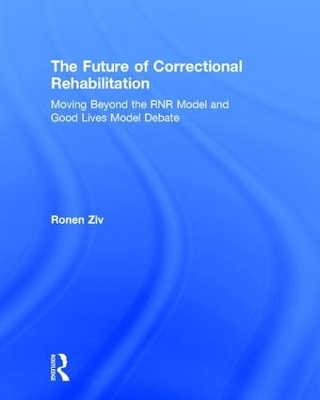
The Future of Correctional Rehabilitation
Routledge (Verlag)
978-1-138-09596-0 (ISBN)
In the aftermath of Martinson’s 1974 "nothing works" doctrine, scholars have made a concerted effort to develop an evidence-based corrections theory and practice to show "what works" to change offenders. Perhaps the most important contribution to this effort was made by a group of Canadian psychologists, most notably Donald Andrews, James Bonta, and Paul Gendreau, who developed a treatment paradigm called the Risk-Need-Responsivity (RNR) model, which became the dominant theory of correctional treatment. This approach was more recently challenged by a perspective developed by Tony Ward, Shadd Maruna, and others, called the Good Lives Model (GLM). Based in part on desistance research and positive psychology, this model proposes to rehabilitate offenders by building on the strengths offenders possess. GLM proponents see the RNR model as a deficit model that fixes dynamic risk factors rather than identifying what offenders value most, and using these positive factors to pull them out of crime.
Through a detailed examination of both models’ theoretical and correctional frameworks, The Future of Correctional Rehabilitation: Moving Beyond the RNR Model and Good Lives Model Debate probes the extent to which the models offer incompatible or compatible approaches to offender treatment, and suggests how to integrate the RNR and GLM approaches to build a new and hopefully more effective vision for offender treatment. A foreword by renowned criminologist Francis T. Cullen helps put the material into context. This book will be of much interest to scholars and students studying correctional rehabilitation as well as practitioners working with offenders.
Ronen Ziv, PhD, is a research fellow of the University of Cincinnati Corrections Institute and a teaching fellow in the Department of Social Sciences, School of Criminology, at the University of Haifa, Israel. He received his MS (2012) and PhD (2016) in criminal justice from the University of Cincinnati. Previously, he received his LLB (2005) and LLM (2006) in Law from Tel-Aviv University and worked as a criminal defense lawyer. His current research interests are in developing and testing the evidence-based approach to correctional rehabilitation, the integration of motivational theories in correctional intervention, and the capacity of correctional agencies to implement a promising correctional framework that aims to rehabilitate offenders.
Foreword by Francis T. Cullen. Part I Beyond Nothing Works. Chapter 1 The Rise and Fall of the Rehabilitative Idea. Chapter 2 Reaffirming Rehabilitation. Part II The Risk-Need-Responsivity Model. Chapter 3 The Theoretical Foundation of the RNR Model. Chapter 4 The Principles of Effective Correctional Treatment: Theory and Technology. Part III The Good Lives Model. Chapter 5 The Theoretical Foundation of the Good Lives Model. Chapter 6 Building Good Lives Through Correctional Intervention. Part IV The Future of Rehabilitation. Chapter 7 The RNR-GLM Debate. Chapter 8 Beyond the RNR-GLM Debate: Two Futures for Offender Rehabilitation.
| Erscheinungsdatum | 30.01.2018 |
|---|---|
| Zusatzinfo | 6 Tables, black and white |
| Verlagsort | London |
| Sprache | englisch |
| Maße | 191 x 235 mm |
| Gewicht | 589 g |
| Themenwelt | Recht / Steuern ► EU / Internationales Recht |
| Recht / Steuern ► Strafrecht ► Kriminologie | |
| Recht / Steuern ► Strafrecht ► Strafverfahrensrecht | |
| ISBN-10 | 1-138-09596-6 / 1138095966 |
| ISBN-13 | 978-1-138-09596-0 / 9781138095960 |
| Zustand | Neuware |
| Haben Sie eine Frage zum Produkt? |
aus dem Bereich


